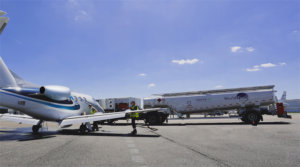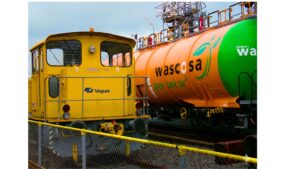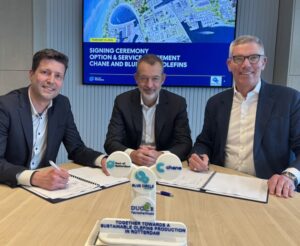LBC Tank Terminals and Duisburger Hafen AG (duisport) have announced the signing of a memorandum of understanding (MOU) for the intention to initiate a joint development of a new inland ammonia and CO2 terminal in Duisburg, Germany. This agreement marks a significant milestone in LBC’s and duisport’s ongoing commitment to supporting the energy transition and decarbonisation of the European industry.
Located in the heart of Germany’s industrial Ruhr region, the Duisburg site offers unique logistical advantages as Europe’s largest inland port. The planned terminal will serve as a satellite facility to LBC’s flagship project in Vlissingen, the Netherlands, where the company is advancing the development of a major ammonia import, storage, and cracking hub. The Duisburg facility will be equipped to receive ammonia by barge from Vlissingen, with on-site infrastructure for ammonia cracking and for further distribution across Germany.
By establishing a direct supply chain link between Vlissingen and Duisburg, LBC aims to provide customers with a seamless solution for the import, storage, and inland distribution of ammonia and hydrogen, as well as the collection and export of captured CO2 for offshore sequestration.
Frank Erkelens, CEO at LBC Tank Terminals, says: ‘We look forward to joining forces with duisport in building a resilient connection between Vlissingen and Duisburg, supporting Europe’s hydrogen and CO2 supply chains. This partnership unites leading logistics and terminal operations expertise to support the European industry in advancing sustainable solutions, and reflects our shared commitment to driving growth while accelerating decarbonisation across the region.’
For duisport CEO Markus Bangen, says: ‘Ports are key players in the energy transition. They create sustainable infrastructure and resilient supply chains. The joint project with LBC complements the already known plan to build a tank farm at Rheinkai Nord and opens up new opportunities for handling the energy sources of the future in the Port of Duisburg. This sends a strong signal for transformation in North Rhine-Westphalia.’









